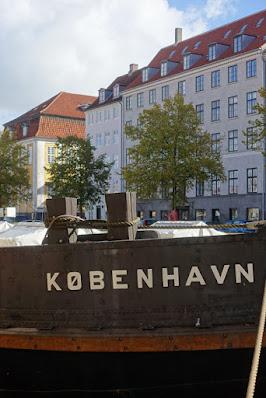
Copenhagen in Danish is Kobenhavn ("Koben Harbor")
Why Copenhagen? 1. We had never been there before. 2. We are big fans of Danish TV—Borgen, The Bridge, Seaside Hotel, The New Nurses—and 3. Copenhagen is an easy train ride to northern Germany where Art was scheduled to attend a conference in Hanover. With a nine-hour time difference between Los Angeles and Denmark, we needed a place to spend a few days to recover from jet lag before the conference started. So in early October, my husband Art and I spent four days in Copenhagen, Denmark--visiting museums, eating delicious food, immersing ourselves in Danish culture.
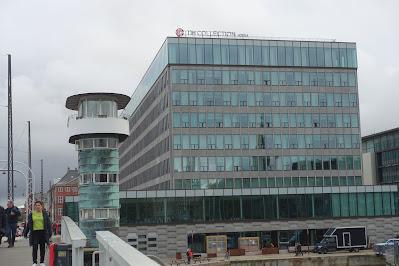
Drawbridge tower on the Knippel Bridge and
our hotel, the NH Collection, a modern glass structure at the side of the canal.
On our first morning, after a lavish breakfast at our hotel--eggs, meat, cheese, fruit and, of course, Danish pastries--we set out, crossing the Knippel Bridge into the center of the city. I had not previously realized that Copenhagen is a city of canals, much like Amsterdam, crisscrossed by bridges and waterways.
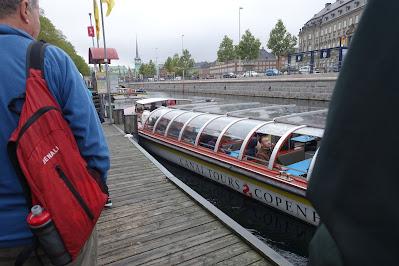
Glass topped canal tour boat, Copenhagen
Tour boats circle through the canals and this seemed like a good way to get an overview of the city; so we bought tickets and joined the crowd waiting to board the next boat. The tour was narrated in English, which turns out to be the universal language in Denmark, since few people outside of Denmark speak Danish.
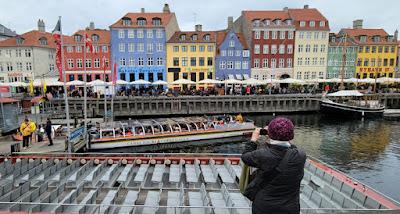
Colorful Nyhavn
The boat made two stops during the one-hour tour, one of them in Nyhavn, with its colorful houses, once filled with rowdy sailors, now with tourists and canal-side restaurants.
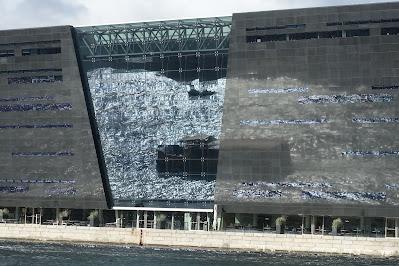
National Library, its windows reflecting the water and a passing ferry.
Among the other sites we saw in the course of our boat tour were: the Queen’s residence; the Opera House (where we were told a diving competition is held once a year from its roof overhanging the canal); the Little Mermaid (less impressive than in pictures); rows of old warehouses, now turned into expensive apartments; the National Library (known as the Black Diamond because of the way light from the water sparkles off the dark glass). Later that day we visited the library, taking an elevator to the top to view the canal from the inside.
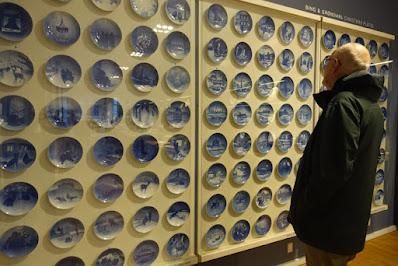
Display of the Royal Copenhagen Christmas plates.
In the center of the city, two long streets lined with shops are dedicated to pedestrians. While shopping was not our goal, we were drawn into the Royal Copenhagen Porcelain shop, where we discovered a display of the classic Danish Christmas plates. We have three (from 1967, 1970 and 1972)—they hang in our kitchen at home—given to us by Art’s aunt, Carolyn T. Arnold, who collected them on her trips around the world. (Portions of Aunt Carolyn's travel memoir have appeared on this blog.)
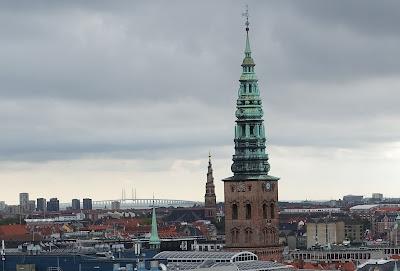
View from the top of the Round Tower, with the bridge connecting Denmark to Sweden in the distance.
Also in the city center is the Round Tower, where from the top one gets a 360 view of the city--a sea of tile-topped roofs punctuated by skinny, church steeples. Tourists walk to the top of the tower, but King Frederick famously rode his horse up the ramp.
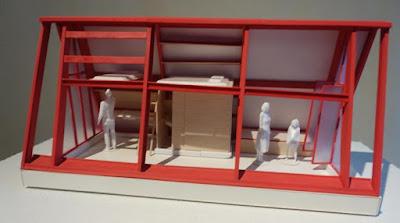
Danish Design Museum. Model of collapseable housing for use in emergency centers. Exhibits at the museum include both state-of-the-art products made with new materials as well as historic examples of fabrics, furniture, and so on.
Over the next three days we visited several museums, including the Danish Design Museum; the old Natural History Museum, which was featuring an exhibit of Neanderthal discoveries; the Palm House and Butterfly House at the Botanical Garden; and the National Historical Museum, with exhibits beginning with prehistory and progressing to Vikings and beyond.
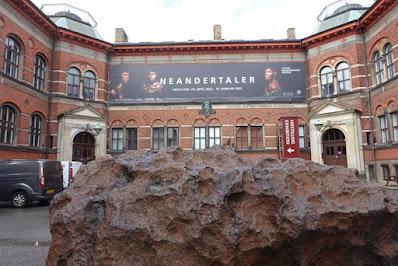
Meteorite in courtyard of Natural History Museum. Inside was a Neanderthal Exhibit
At all of the museums, helpful explanatory labels were in both Danish and English.
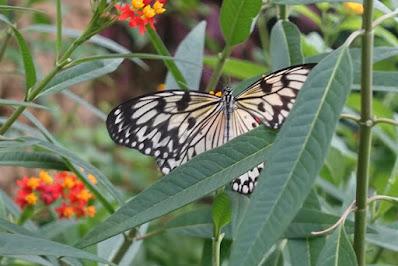
At the Butterfly House in the Botanical Garden.
We devoted a whole day to the Louisiana Modern Art museum, a forty-minute train ride north of Copenhagen—worth its own blogpost. It, like all of the museums, has a nice cafe—the perfect stop for lunch or afternoon coffee.
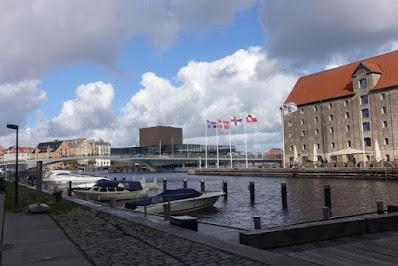
Walkway along the canal. Copenhagen is a mix of old and new.
Copenhagen is a very walkable city. By law, all the canals must have pedestrian walkways along the side and streets through the neighborhoods generally have little traffic. However, as a pedestrian, one has to watch out for both bicycles and cars. Bicycles are a preferred mode of transport and get a separate lane on main roadways.
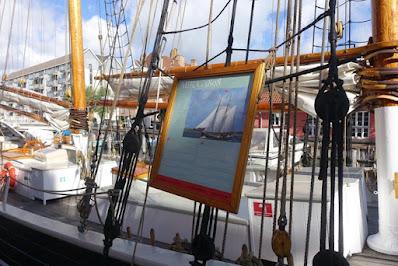
As a major port in the North Sea, boats and shipping are at the center of Copenhagen's history.
We dressed in layers for the cool fall weather and always carried an umbrella for the occasional shower. But overall, the weather was perfect for exploring the city.
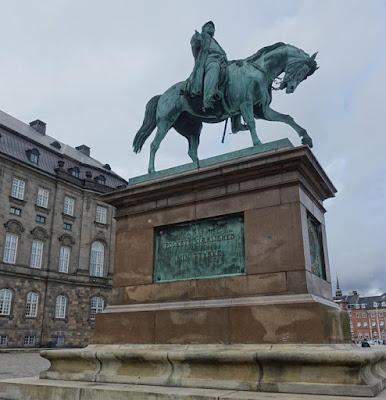
King Frederick on his horse.
We didn't see everything on our visit to Copenhagen (for instance, Tivoli, the famous amusement park, was closed for the season) but we got a good taste of Danish culture. At the end of our four days we knew a lot more about Denmark than before and had significantly reduced our jet lag.
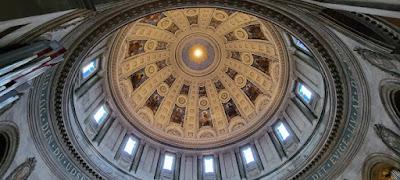
Inside the dome of the Marble Church.
